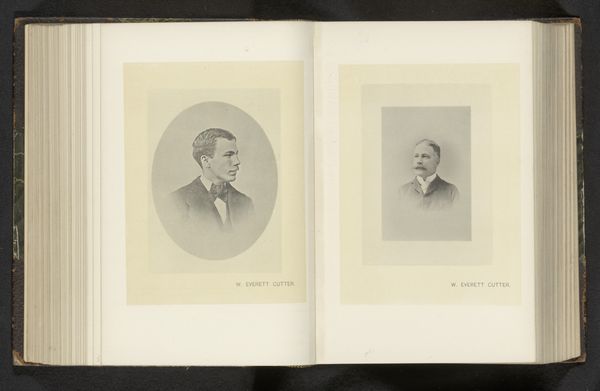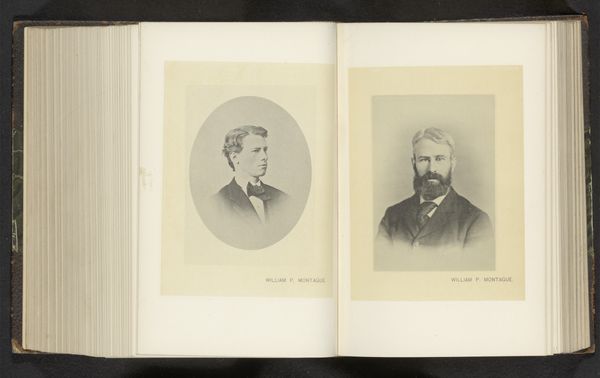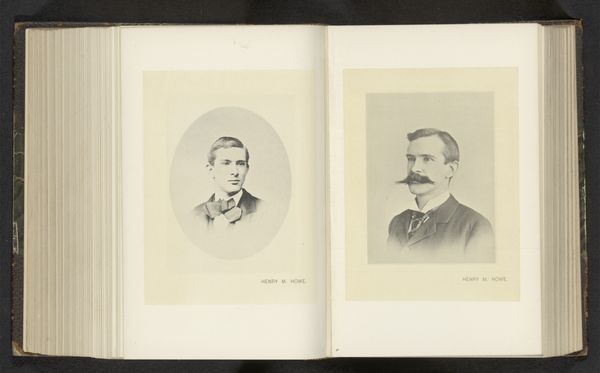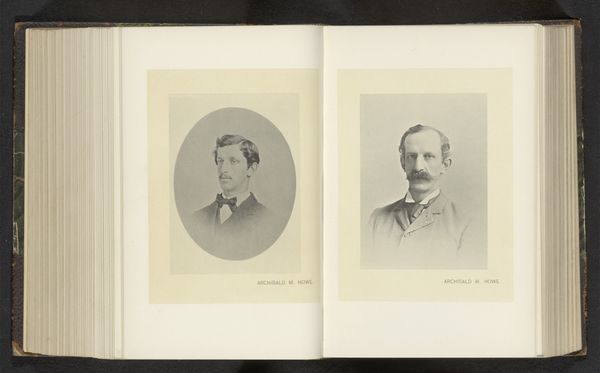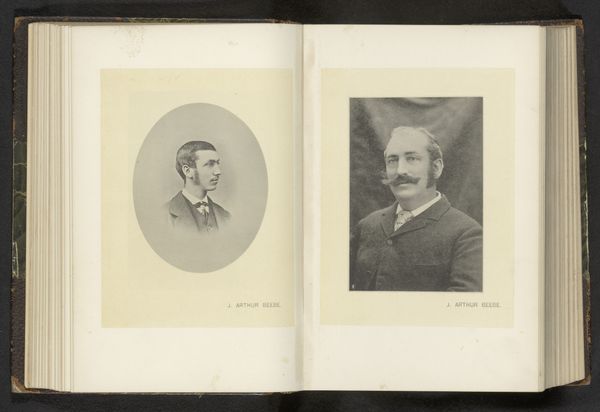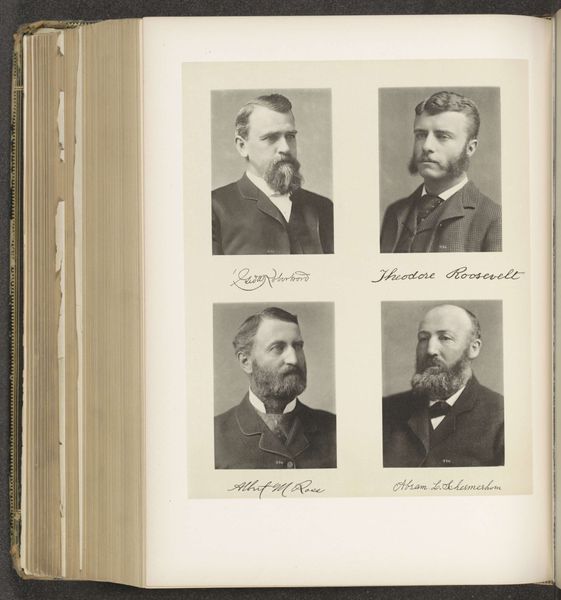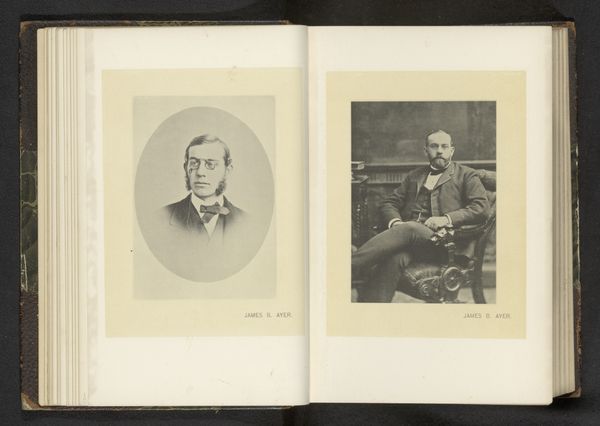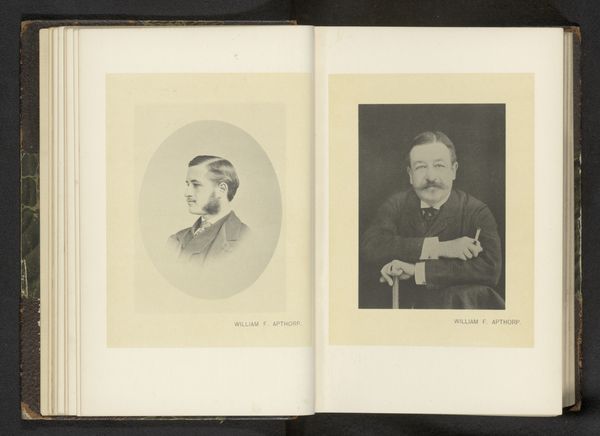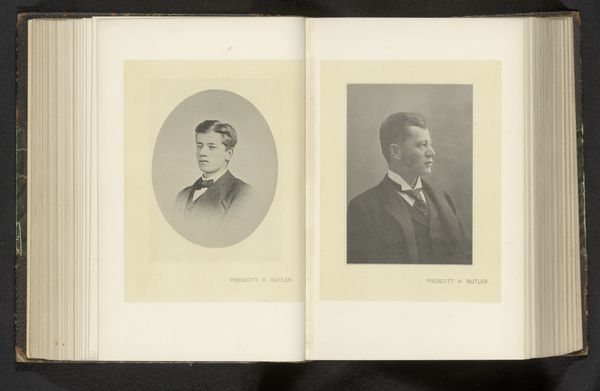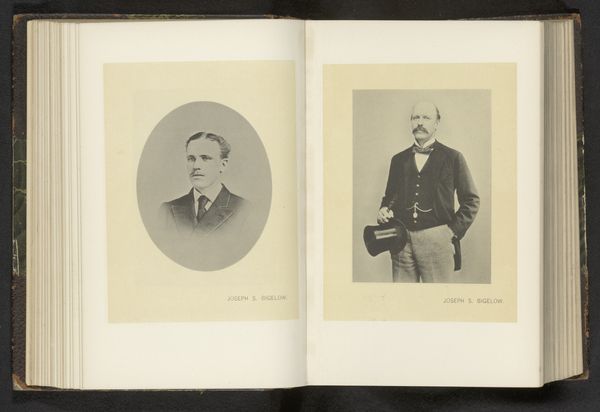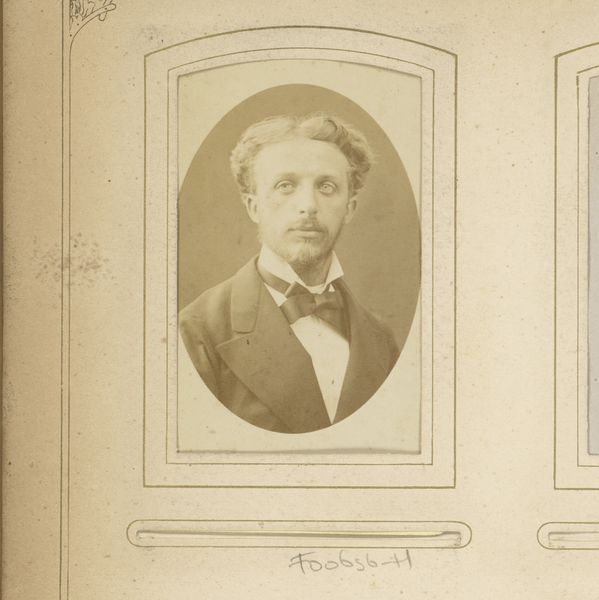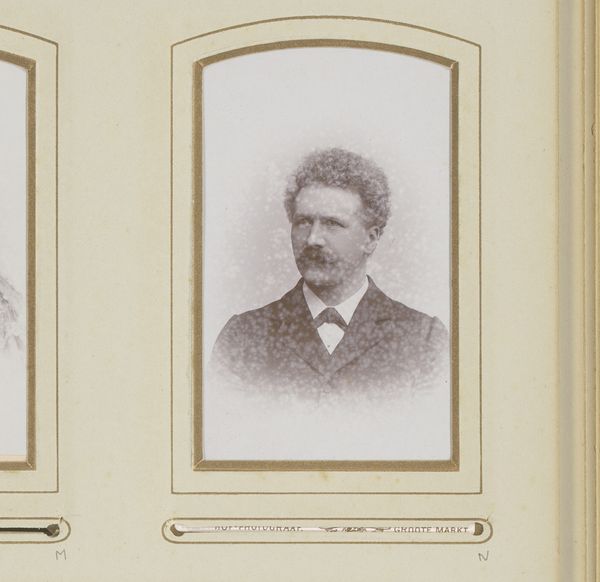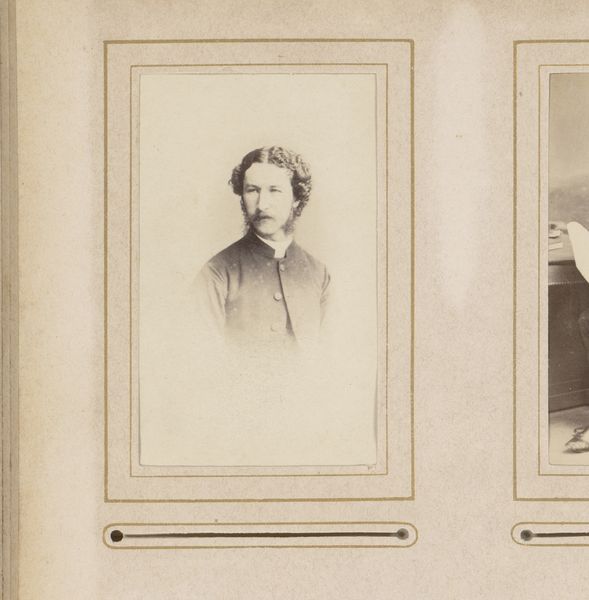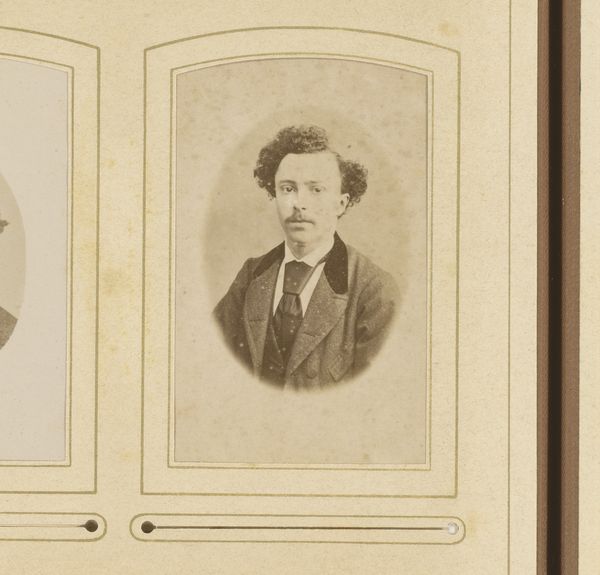
photography, albumen-print
#
portrait
#
aged paper
#
homemade paper
#
paper non-digital material
#
paperlike
#
sketch book
#
paper texture
#
photography
#
personal sketchbook
#
folded paper
#
thick font
#
history-painting
#
paper medium
#
albumen-print
Dimensions: height 117 mm, width 83 mm
Copyright: Rijks Museum: Open Domain
Editor: Here we have a fascinating albumen print from 1869, titled "Richard T. Greener," authorship currently listed as Anonymous. I find the visible album binding especially striking. How can we analyze it? Curator: Considering the material constraints, we can focus on the albumen print itself and the book as a manufactured product. Albumen printing involved coating paper with egg whites, which increased sensitivity to light and allowed for sharper photographic images. But why select *this* process and then bind the result within *this* specific book format? Editor: So, it's not just the image, but the technique and presentation that matter. What was the appeal of these methods at the time? Curator: Exactly! The albumen print offered a relatively inexpensive way to produce multiples, democratizing image production to some extent, though the labor involved was considerable. The binding elevates the images; their production and assembly creates an interesting dialogue between artistic expression and the industrial capabilities available at the time. What labor and resources are invisibly present? Editor: I hadn't considered that aspect of it. It makes me wonder about who made the paper, who bound the book, the sourcing of the materials – it's all tied to industry. Curator: Precisely. Consider who would own such a book. For what purpose? The circulation of images matters as much as the images themselves. By questioning how this album of photographs came into being, we expose underlying social and economic forces. Editor: Thinking about it as a physical object deeply rooted in a specific moment in history gives it so much more meaning. I’ll certainly look at materiality in new ways going forward. Curator: Me too. Thank you for directing my focus!
Comments
No comments
Be the first to comment and join the conversation on the ultimate creative platform.
